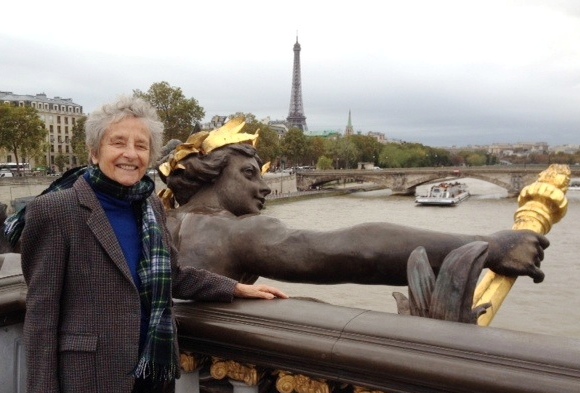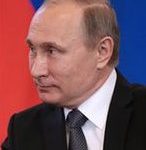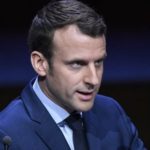
The hour-long press conference held jointly by long-standing Russian President Putin and newly-elected French President Macron in the Palace of Versailles on May 29, was a spectacle not to be missed.


Putin had been absent from the high-powered week during which US President Donald Trump met with heads of state at the new NATO headquarters in Brussels and at the G7 summit in Taormina, Sicily. Macron seized an opportunity to invite the Russian president. The timing, location and format of the encounter of the two presidents were a smart move on the part of Macron.
He was not organizing a “state visit” – lest he offended Angela Merkel – but asking the Russian leader to be present at the inauguration of an exhibit marking the 300th anniversary of the visit of Tzar Peter the Great to France. The two presidents met in the grandiose 17th century palace of the French monarchs. Putin would probably find similarities between the ornate rooms and his elegant home town of St. Petersburg.
The visit was organized under the sign of culture and meant to revive the historical ties between the two countries. Macron mentioned how much Peter the Great had wanted to open up his country to the West and learn about its military architecture, crafts, and sciences. Putin contributed proudly an even earlier historical fact – the marriage at Queen Ann of Kiev, daughter of Grand Prince Yaroslav the Wise, to French King Henry I, in 1051.
During the press conference, the supposedly “novice” French president appeared self-assured, and totally in charge of the proceedings. He described how he envisaged cooperation with Russia. His road map for Syria was to guarantee humanitarian aid to the population and emphasize that the use of chemical weapons would constitute a red line that would be met with an immediate response from France.
Macron added that failed states lead to chaos. Hence the necessity to keep Bachar el Assad until ISIS is eradicated. In Ukraine, he stressed that an agreement should be reached within the framework of the Minsk accord. The objective there is both to stop progression of the spheres of influence of Russia in the region and the escalation of violence. He did not say the word ‘Crimea,’ however, implying that its return to the Ukraine was not on the agenda.
In his statement, Macron declared that during their three-hour-long conversation they covered all topics, including areas of disagreement. As he mentioned the treatment of homosexuals and transgenders in Chechnia, he turned toward Putin and told him to his face, “We will monitor the progress you make in that area.”
During his talk, Putin looked fidgety, ill-at-ease, squirming, and with shifty eyes. He mumbled his comments. He did say though that he would be ready to engage in a dialogue. Then, turning toward the audience of international media, he almost pleaded with them, saying, “You have to convince public opinion that the sanctions are stifling Russia. Tell the world they have to be lifted.”
French journalists raised questions about the spread of fake news on the social networks and in magazines like Sputnik and Russia Today intended to destabilize the leader of the En Marche movement during the campaign. Macron retorted that those people are not journalists and will not be treated as such.
Journalists also asked what the French government was going to do about the hacking of 70,000 documents belonging to then-candidate Macron 40 hours before the first round of the vote. Macron responded that he was not going to dwell on those events, adding, “What I want to do is to move on.”
From the exchanges between the two protagonists, it was clear that Macron was in control of the situation. His message was clear and direct. The days when Putin disregarded the EU as being too weak were now over. The power dynamic was the correct one for Macron to use and Putin understood that.
This was a textbook situation where the two protagonists, although not liking each other, could work out a resolution from which both could profit. Since 1990, Putin — a major player behind the war in Syria — has been shattered by the implosion of the Russian empire. Moreover, since sanctions are hurting his country severely, the give and take of negotiation is therefore possible.
Now, we can only hope that effective action will match the quality of this performance by Macron.
Editor’s Notes:
i) This is the opinion of Nicole Prévost Logan.
ii) Nicole is, in fact, now back in Essex, but events in France are currently moving so fast that she’s continuing to write for us from this side of the Atlantic in an effort to keep readers over here up to date. Merci, Nicole!

Nicole Prévost Logan
About the author: Nicole Prévost Logan divides her time between Essex and Paris, spending summers in the former and winters in the latter. She writes a regular column for us from her Paris home where her topics will include politics, economy, social unrest — mostly in France — but also in other European countries. She also covers a variety of art exhibits and the performing arts in Europe. Logan is the author of ‘Forever on the Road: A Franco-American Family’s Thirty Years in the Foreign Service,’ an autobiography of her life as the wife of an overseas diplomat, who lived in 10 foreign countries on three continents. Her experiences during her foreign service life included being in Lebanon when civil war erupted, excavating a medieval city in Moscow and spending a week under house arrest in Guinea.